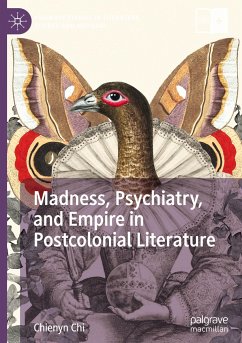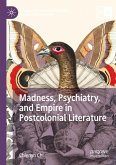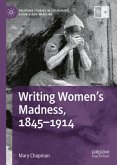Madness, Psychiatry, and Empire in Postcolonial Literature provides a comparatist interrogation of empire through archives of history, science, and literature. The book analyzes Aimé Césaire's Discourse on Colonialism to shed light on Césaire's critique of psychological and medical discourses of the colonized's mind. The book argues that the discourse of psychiatry, psychology, and psychoanalysis has erased the context of power in global histories of empire. Through the book's chapters, Chi analyzes Lu Xun's "A Madman's Diary," Virginia Woolf's Mrs. Dalloway, and Tsitsi Dangarembga's Nervous Conditions to assert that the misapprehension of madness should not automatically be accepted as the history of an isolated Western culture but rather that of the history of imperialism-a globalizing process that silences alternative cultural conceptions of the mind, of madness, and of behavior, as well as different interpretations of madness.
"Chi s book deals with psychoanalysis, which can be hard to navigate, she guides the reader s journey with interesting chapters, chapter titles and familiar notions of scholars such as Freud, Césaire, Woolf and Xun, that break the book into manageable pieces, offer a roadmap and echo the themes and motifs in the book. ... Chi s work teaches us that decolonial psychoanalysis would consider history, positionality and cultural difference, rather than applying Western norms universally." (Temitope Dorcas Adetoyese, The British Society for Literature and Science, bsls.ac.uk, June 5, 2025)








